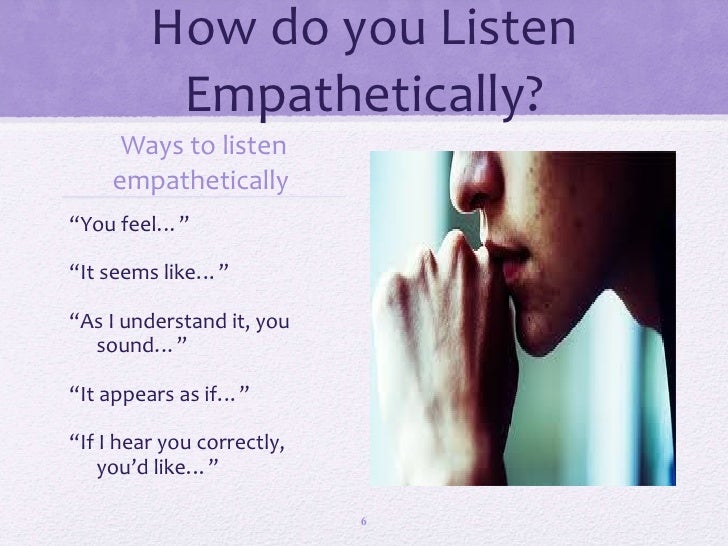

Looking at the data from our online meetings, we at Avoma have found that the recommended talk range is 40%–60%. The key is not to be consumed by a preconceived notion and, more importantly, without the temptation to respond or interrupt. These days, listening 'empathetically' is increasingly becoming an important skill set for all customer-facing teams.Įmpathic listening means to listen with your whole self -giving your undivided attention (both intellectually and emotionally) to your prospects, customers, and potential partners to enhance your relationship with them. 'Listen with empathy' sounds like one of those phrases that executive coaches repeat in personal development seminars-and rightly so.

This post will look at what empathetic (also called 'empathic') listening is, why it is important, and how your sales and customer success teams can master it. It's a soft skill that benefits the sales team and other functions like customer success, product development, and marketing.

When you listen with empathy you to build deep emotional connections with customers, which helps you have meaningful, in-depth conversations. What you need is the power to listen empathetically to your customers. Ironically, developing a gift of gab isn't exactly the kind of advice that salespeople need today.
#EMPATHETIC LISTENING HOW TO#
Simply put, there's just too much talk about how to talk. The more you look around you, the more you will notice how salespeople are always taught to channel their inner car salesman to push, persuade, and provoke their prospects into closing a deal. It's filled with bad advice for salespeople on how to speak to customers, how to nail your cold calls, how to refine your 30-second elevator pitch, and how to control a sales conversation.


 0 kommentar(er)
0 kommentar(er)
